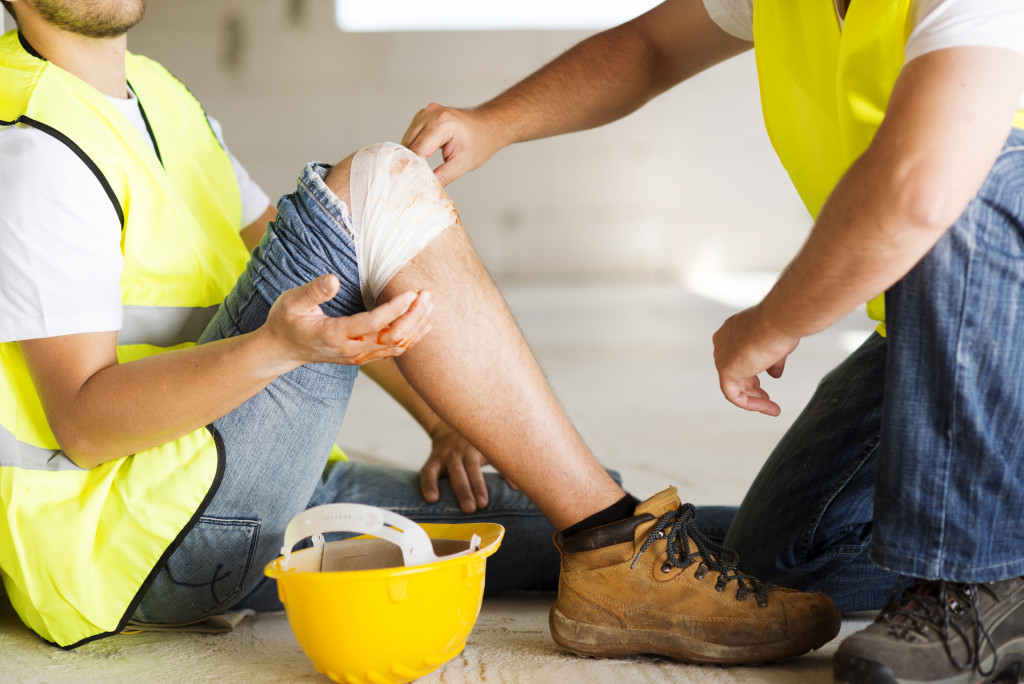Around 2.1 million work-related injuries were reported by employers in 2020. The figure is 5.7 percent lower than in 2019. On the other hand, cases of illness increased by four times to 544,600 cases. The increase in cases was mainly due to the effects of the pandemic. Due to this, many families are concerned about the health and safety of their loved ones.
If your loved one has been injured at work, you may feel overwhelmed and unsure of what to do next. Here are a few tips for how to navigate this difficult time:
Seek medical attention as soon as possible.
The importance of seeking medical attention as soon as possible after a work-related injury can’t be overstated. Many times, the sooner you get treated, the less severe your injury will be. Severe injuries can lead to long-term health problems and missed work, so it’s best to seek treatment as soon as possible.
If you’re unsure whether or not you need to see a doctor, it’s always better to err on the side of caution. Many workplace injuries, such as strains and sprains, can be treated at home with rest and over-the-counter pain medication. However, more serious injuries, such as broken bones or deep cuts, will require professional medical treatment.
Your loved one’s health and well-being should be your top priority. So, make sure to get a full assessment of the extent of the injury and follow any recommended treatment plans.
Keep communication lines open.
Communication is vital when it comes to any family issue, and that includes a work-related injury. It can be tough to deal with an injury, both physically and emotionally, so it’s essential to have a strong support system. That support system starts with communication. Make sure you keep open lines of communication with your partner, family, and friends. They can help you through this difficult time.
Communication is key to ensuring that everyone is on the same page. By staying in touch and keeping open lines of communication, families can better support one another through this challenging time. Some benefits of keeping communication open include:
- Families can better share information and updates about the injury and prognosis.
- Families can collaborate on caregiving tasks.
- Families can provide emotional support to one another.
- Families can make decisions together about the injured family member’s treatment and care.

Stay organized.
If a loved one is injured at work, it is crucial to stay organized so that you can keep track of their medical appointments and paperwork. Make a list of all the doctors they need to see and keep copies of all their medical records. You should also list all the tasks they need to do when they return to work, such as returning to work part-time or finding a new job. Having a plan will help make the transition back to work easier.
This is likely a stressful and complicated time, so staying on top of paperwork and deadlines is crucial. Stay in communication with your loved one’s employer and the insurance company. Make sure you understand the workers’ compensation process and what benefits your loved one is entitled to.
The family could choose to file a lawsuit against the at-fault party if the loved one was injured due to negligence at the workplace. In this situation, they should hire a reputable personal injury lawyer. The legal professional can help them understand their legal rights and get suitable compensation. This is particularly true if the loved one is the breadwinner in the family and cannot work for a long time.
Seek out support.
Family and friends can be great support systems when someone is dealing with a work-related injury. They can provide emotional support, help with meals or household tasks, and offer words of encouragement. It can be helpful to have someone to talk to who understands what you’re going through.
If you don’t have a support system at home, other options are available. There are many support groups for people with work-related injuries. These groups can provide helpful information and resources and an outlet for sharing your experiences with others who understand what you’re going through.
In addition, to support groups, there are also counseling services available. Counselors can help you deal with the stress and anxiety that comes with a work-related injury. They can also guide how to manage your injury and cope with the changes in your life.
Dealing with a workplace injury is never easy, but following these tips will help make the process easier for you and your family. Remember, you’re not alone—people and resources are available to help you through this tough time.




